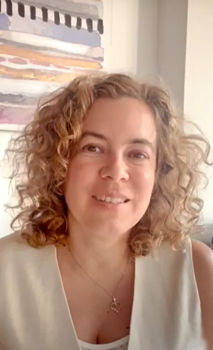The Impact of Age on IVF Success
Find out what the impact of age is on IVF success, especially with regard to egg and sperm quality.
The impact of age of IVF success
Did you know that the relationship between age and IVF can make a difference in the chances of success of this treatment?
In vitro fertilization (IVF) has revolutionized the possibilities of conception, especially for those who face challenges on their path to parenthood.
However, not all the factors that influence its success are fully known to people. One of the most determining factors is age.
Key Takeaways
- The quality and quantity of eggs and sperm decline with age, significantly impacting IVF success rates.
- IVF success rates vary greatly by age, with the highest success rates seen in women under 35 and decreasing significantly for women over 40.
- Older couples can increase their chances of success with alternatives such as egg donation and by undergoing comprehensive medical evaluations before starting IVF.
Analyzing how age affects egg and sperm quality
The quality and quantity of eggs and sperm are critical to IVF success, but did you know that both decline with age?
Here we explain how this phenomenon affects the chances of IVF success.
Egg quality and quantity
From birth, women have a finite number of eggs and this number decreases over the years. Not only does the quantity of available eggs decrease, but the quality of the eggs is also negatively affected as a woman ages.
Older eggs are more likely to have chromosomal abnormalities, which can lead to problems during embryonic development. The result is poor quality embryos that may not implant properly in the uterus or lead to miscarriage.
Sperm quality in men
Contrary to what many might think, the quality of sperm is not constant throughout a man's life. Around the age of 40, significant changes begin to occur that can influence the success of both natural and assisted fertilization.
As men age, sperm quality tends to deteriorate. This includes a decrease in motility (the sperm's ability to move effectively towards the egg) and morphology (the normal structure of the sperm).
Older men's sperm tends to accumulate more genetic mutations. These mutations can affect the sperm's ability to fertilize the egg and increase the risk of genetic disorders in the offspring.
As the quality and quantity of eggs and sperm decrease with age, so does the rate of successful fertilization. This is because lower-quality gametes are less likely to successfully unite and develop into a viable embryo.
Furthermore, even if implantation occurs, the risk of miscarriage is higher, especially in couples where the woman is over 35 years old and the man is over 40.
IVF success statistics according to different age ranges
In vitro fertilization is not the same journey for everyone. Statistics show clear differences in outcomes depending on the age of the women.
Under 35 years old
In this group, the probability of pregnancy with IVF is usually the highest, exceeding 55% per cycle. This is due to the better quality and quantity of available eggs.
Between 35 and 39 years old
Although women in this age range still have significant chances of success, the probability of pregnancy per cycle can vary between 40% and 50%.
Over 40 years old
The situation changes significantly after this age. IVF success rates for women over 40 tend to be lower, with a 22% probability of pregnancy per cycle for women between 41 and 42 years old.
The percentage decreases even further for women over 43. This reflects a lower quality of eggs, as well as an increase in age-associated complications.
Comparing these groups, it is evident that age is a determining factor in the effectiveness of IVF.
Younger women generally experience higher success rates, while older women face more significant challenges, often requiring additional cycles or alternatives such as egg donation to improve their chances of success.
Alternatives and recommendations for older couples
As age advances, in vitro fertilization options must adapt to new biological realities.
For older couples, especially those concerned about the relationship between age and IVF, there are key alternatives and recommendations that can increase the chances of success and ensure a healthy and ethical process:
Viable options to increase success
One of the most effective alternatives for older couples is egg donation. For many older couples, this is a viable option that can significantly increase IVF success rates. The eggs from young and healthy donors have a higher probability of developing properly after fertilization, thereby increasing the chances of a successful pregnancy.
Key recommendations before starting IVF
Before starting treatment, it is crucial to undergo comprehensive medical evaluations. These tests ensure that you are in optimal condition to face the process, while also helping to personalize the IVF treatment to maximize your chances of success.
On the other hand, it is important to consider that the decision to embark on the IVF journey involves many ethical considerations, especially in the case of using donated eggs.
It is important to discuss these issues with your partner and the medical team to ensure that all parties feel comfortable and well-informed about the process.
In vitro fertilization is a window of hope for many couples, but it is essential to recognize that each case is unique.
This is especially important when it comes to age and other personal conditions. For this reason, expert and personalized guidance becomes indispensable.
🙌 You're not alone — we’re here to guide you
Whether you're comparing clinics, navigating your options, or trying to understand what the next step should be, having clear medical guidance truly makes a difference.
Every patient who reaches out speaks directly with Dr. Alejandro Castillo Peláez or his international coordinator, Michaël — so your questions are answered by the people who are actually involved in your care.
Our role is simple: to help you access safe, transparent and personalized fertility treatment in Mexico, without overwhelm or guesswork.
Meet Dr. Alejandro Castillo Peláez
Dr. Castillo Peláez would like to connect with you for a consultation.
👇🏼 Book a consultation
Get answers to all your questionsabout fertility treatments in Mexico.
Thank you. We'll get in touch with you soon.

and reproductive biologist
Patient stories and testimonials
Read the great reviews from patients who have been fortunate enough to have Dr. Alejandro Castillo as their fertility specialist.









